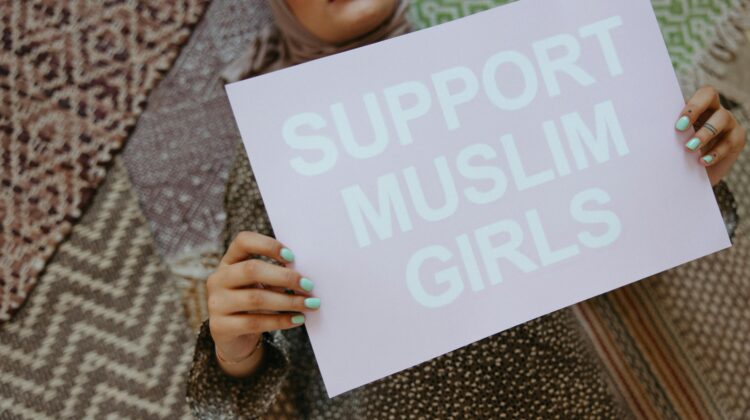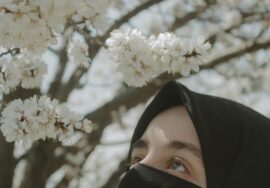
Activism Burnout: a Prophetic Perspective
As we age, we get a better idea of who we are and what we want to do for our society; however, most of us fail to reach the ideals we set for ourselves. The reality is that our cultures stomp out our ambition and attempt to force us into boxes- I wrote about a similar topic prior when writing “The Status of Femininity”- regardless, the outcome of these practices is that many people choose to stick to themselves despite having the potential to do amazing things with their life. Many cracks within our communities continue to deepen due to this unfortunate fact. This fact begs two essential questions: “Are we truly ok with our current positions despite having potential?” and “Is there a way we can motivate ourselves and others to break out of this mindset?”
To start answering these questions, we should dive into two of the factors: denial and fatigue. Activism can only do so much to break the status quo when the front lines are empty; you’re facing off against Goliath. When paired with the fact that trying to recruit others to your cause leaves you feeling like the crazy guy on the corner with a “the end is nigh” sign. It makes sense why most people would choose to remain within the comfort of their mediocrity. I notice Muslim women are especially affected by the above problem; the community puts so much external pressure to perform and be “perfect” that many women eventually lose their passion for Islam and find more success within their work, marriages, etc.
So what can we do about this?
There’s a principle within Islam called tazkiya, which refers to spiritual purification. The core of tazkiya is to improve yourself to serve Allah better and improve your spiritual health. You might be wondering, “Why am I bringing this up here;” the answer is that our spiritual health is linked to our emotional and physical health. Our intention for doing anything beneficial should be to please Allah first. When we have this foundation, the rejection we face along the way will feel far less significant.
To see this rule in effect, you need to look no further than the life of the prophet SAW: when he received revelation, his tribe refused to listen to his calls to monotheism and resorted to extreme persecution. Yet, Muhammad SAW and his companions didn’t waver in their efforts. They knew that the victory was ultimately with Al-Ghalib (the victor) and that their suffering would be rewarded beyond their comprehension. This iman (belief in Allah) gave them the strength to keep going. Eventually, the Muslims were blessed with the upper hand, gaining power and the ability to practice the deen freely.
Another key aspect of tazkiya is seeking knowledge: if we want to improve the conditions for other Muslim women, we first need to understand what Allah wants from us. If we don’t, we’re merely the blind leading the blind. Shaykha Hanifa Yunis says: “When Allah loves you he gives you knowledge.” Our education transforms our character by necessity: as we improve, we learn how to best go about our outreach and understand the hikmah (wisdom) behind Allah’s commandments. Most importantly, it also gives us fulfillment- the face of failure seems far less ugly as we progress in our education. The Wives of the Prophet, aka “The Mothers of the Believers,” were known for their knowledge and emphasis on tazkiya. Aaisha is an exceptional standout for keeping those around her on the path toward spiritual purification:
“Aisha, the wife of the Prophet of Islam, says of him: ‘On every occasion, the Prophet of Islam remembered God.'” (Sahih Muslim, Hadith No. 373)
She taught the companions and the following generation the Qur’an, and when she saw something wrong, Aaisha spoke up about it. Her life is one of the best examples of how keeping Allah at the forefront of our lives is one of the biggest keys if we want to become one of the pillars of our community, just like Aisha.
Once the internal aspects of this issue have been addressed, we can begin the external. Almost any woman seeking a religious education would agree with me when I say, “We need our own spaces.” Establishing our independent groups not only allows us to access female mentorship- something needed direly within the education and nonprofit spheres- it also helps us understand what the ideal Muslim woman looks like in our specific cases.
Another big suggestion is to be balanced when reaching out to others. The Sunnah establishes giving those interested in learning a chance regardless of status, as shown by Surah Abasa verses one through eight:
“He frowned and turned his attention away. ˹simply˺ because the blind man came to him ˹interrupting˺You never know ˹O Prophet˺, perhaps he may be purified. Or he may be mindful, benefitting from the reminder. As for the one who was indifferent, you gave him your ˹undivided˺ attention, even though you are not to blame if he would not be purified.”
These ayahs (verses) were revealed after a blind man interrupted a meeting with the Quraysh to ask questions about Islam. This interruption frustrated the prophet, who turned away rather than answer. The lessons within are apparent: if someone asks you a question from a genuine place, you should do your best to direct them to where they can get the answer. Telling someone who is just curious to “Google it” doesn’t yield positive results. However, in the modern landscape of disinformation bots and bad actors weaponizing “asking questions” to attempt to spew logical fallacies, learning the difference is crucial. The prophet used hikmah (wisdom) in every interaction; we should do our best to live up to that example to avoid burning ourselves out or falling for misinformation.
The modern landscape contains unique challenges when it comes to pushing for better conditions within society. However, that doesn’t mean failure or sticking to ourselves is always the answer. By implementing the principles of tazkiya: including educating ourselves and changing how we approach others, we can find balance within our outreach and stop us from giving up. Al-Ghalib loves our efforts and wants to see us keep going.









